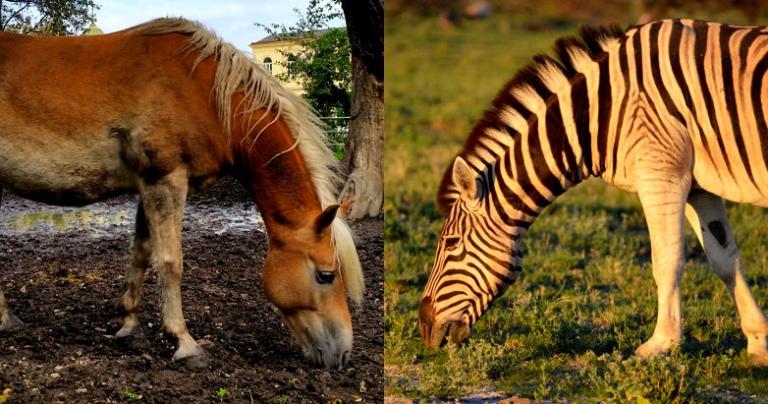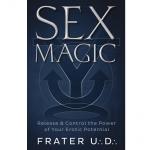Hello, beautiful creatures. Of the many subjects I’ve wanted to address in this column, I have to confess that the issue of abuse in Pagan, polytheist, and magical communities is right down there at the bottom of the list.
Sadly, the subject of abuse in our interlinked communities has come up multiple times since I started this column back in August, most recently in the allegations levied by multiple members of the Bay Area organization CAYA Coven against the group’s former high priestess, Jessica Matthews a.k.a. Yeshe Rabbit. We are, after all, as much a part of the zeitgeist as everyone else. Movements like #MeToo and #TimesUpthe have demonstrated a growing anti-abuse sentiment within mainstream society, so our own struggles with abuse rising to the surface should come as no surprise.
That doesn’t make it a subject I’m eager to engage with, though. There are a lot of reasons why I’ve wanted to avoid this topic, some of which are purely pragmatic. Abuse is kind of a bummer, y’know? It’s not gonna drive a lot of traffic, is what I’m saying. Besides, I’m sure that most of you reading this don’t need to be told that abusing people is bad, right? It’s probably best to skip it and write about something happier, something guaranteed to draw readers in. Hey, I could write some more about witch-aesthetics! That seemed to get some conversation rolling.
That’s not what we’re going to do today, though, because all those pragmatic reasons aren’t really why I don’t want to write about abuse.
The real reasons are deeply personal, enough so that the wisdom of doing so is, perhaps, somewhat debatable.
And yet, here we are.
So, I’m going to make three quasi-public1 disclosures here.
1. I’m a survivor of child abuse, which transpired between the ages of three and seven.
2. I was a victim of intimate partner violence in an adult relationship.
3. I’ve been subjected to gaslighting and other forms of manipulation by a teacher and mentor in the Pagan community.
I’m not making any of these disclosures because I want sympathy, nor because I believe they magically grant my statements greater discursive moral weight in these conversations. I’m making them because lived experiences matter. These experiences in particular give me some educated perspective on the matter, and provide some context for my discursive positions on the issue of abuse in our communities. For instance, I tend to have a rather broad-spectrum view of what the term “abuse” entails. The first definition of the verb form of “abuse” is “to put to a wrong or improper use,” which covers a lot of ground. It certainly covers the sort of physical and emotional violence I experienced as a child, or again as an adult, or the kinds of sexual abuse I’ve written about previously on this blog. However, it also covers the emotional and spiritual manipulations employed by people in positions of authority to maintain their power over others and satisfy their own desires.
I’ve seen these forms of abuse play out again and again in our communities. I’ve watched them unfold online, from a “safe” distance, and I’ve been caught in the firestorm, up close and personal. I’ve read many different Pagan, polytheist, and practitioner pundits write about this issue, eloquently and passionately, from a variety of perspectives. I’ve written about it myself, here and elsewhere.
And still it happens.
In an unguarded moment of honesty on my personal Facebook, I wrote, “For a movement that places so much value on personal, spiritual, and sexual autonomy, we sure do seem to have a problem with serial abusers.”
I stand by that statement, but I think it only tells half the story. The p-word communities do indeed have a problem with serial abusers, but we also have a problem acknowledging their victims and accepting the lived realities of the people who are harmed by these abusers. We have a problem accepting that we create the environment in which predators and perpetrators survive, thrive, and move on to other hunting grounds when one locale is exhausted. Most of all, we have a problem believing that someone in whom we invested so much of our power and trust—this elder and pillar of the community, this loving and wise mentor, this friend and ally—could abuse that power and betray that trust so profoundly.
And so, we find ourselves looking at the accusers with a dim eye. We find ourselves questioning the ones who were harmed, rather than the one accused of harming them. We start doubting their stories—it couldn’t really have been that bad, could it? why didn’t they say something sooner?—and questioning their motives—what are they looking to get out of this? why would they attack someone so beloved, so wise, so… good?—because the alternative is too painful to bear. It’s easier for us to imagine a nefarious group of disgruntled people conspiring to ruin the reputation of a powerful person we like than to imagine that someone we like would rise to power through the willful infliction of pain and suffering.
We fear, I think, what it says about us and our judgment, to have been so close to a person like that. We fear what it says about who we truly are, and what we truly value.
The good news—if it can be called such—is that we can always change our minds. We can choose to listen to the voices of the wounded, and give their stories credence. In other words, we can believe survivors. Believing the people who come forward with allegations, often at great personal risk, is the first step in changing the culture from one in which abuse is an accepted norm to one in which we are proactive in supporting survivors and vigilant about preventing abuse.
The obvious rejoinder is, of course, “what about false allegations?” So, let’s talk about that. Actual studies on the rate of false allegations give widely variable data based on several factors, including the nature of the accusation, when the study was done, and what qualifies an allegation as “false.” At a rough estimate, though, false accusations of criminally abusive behaviors account for maybe as much as 10% of all such accusations. One can perhaps be forgiven for thinking that any given single allegation could conceivably be a false accusation motivated by jealousy or revenge… but honestly, the odds are against it. Multiple allegations against a single person start to strain that credulity, requiring one to believe in the existence of a conspiracy in order to maintain a belief in the accused’s innocence.
Those who would see a massed group of survivors making allegations as some sort of nefarious plot would do well to remember the medical adage about mysterious illnesses: when you hear hoofbeats, think of horses, not zebras2.
When you hear multiple allegations of abuse, think of abusers, not conspiracies.
Until next time, dear ones, stay safe. ♥
The “Mirror” Series:
- A Long, Cold Look in the Mirror
- The Missing Stair and the Enabling of Abuse
- A Personal Recollection of Complicity
- Now Here, Nowhere—Where Now?
- A Brief Interlude on Words and Power
- An Ending, with Neither Closure nor Resolution
- Horses and Zebras: Some Thoughts on Abuse in Our Communities (epilogue)

- I say “quasi-public” because I’m writing this blog under an assumed name, even if my mundane legal name is a poorly-kept open secret at best.
- This adage coined by Dr. Theodore Woodward of the University of Maryland School of Medicine, presumably based on the scarcity of zebras in Maryland.












